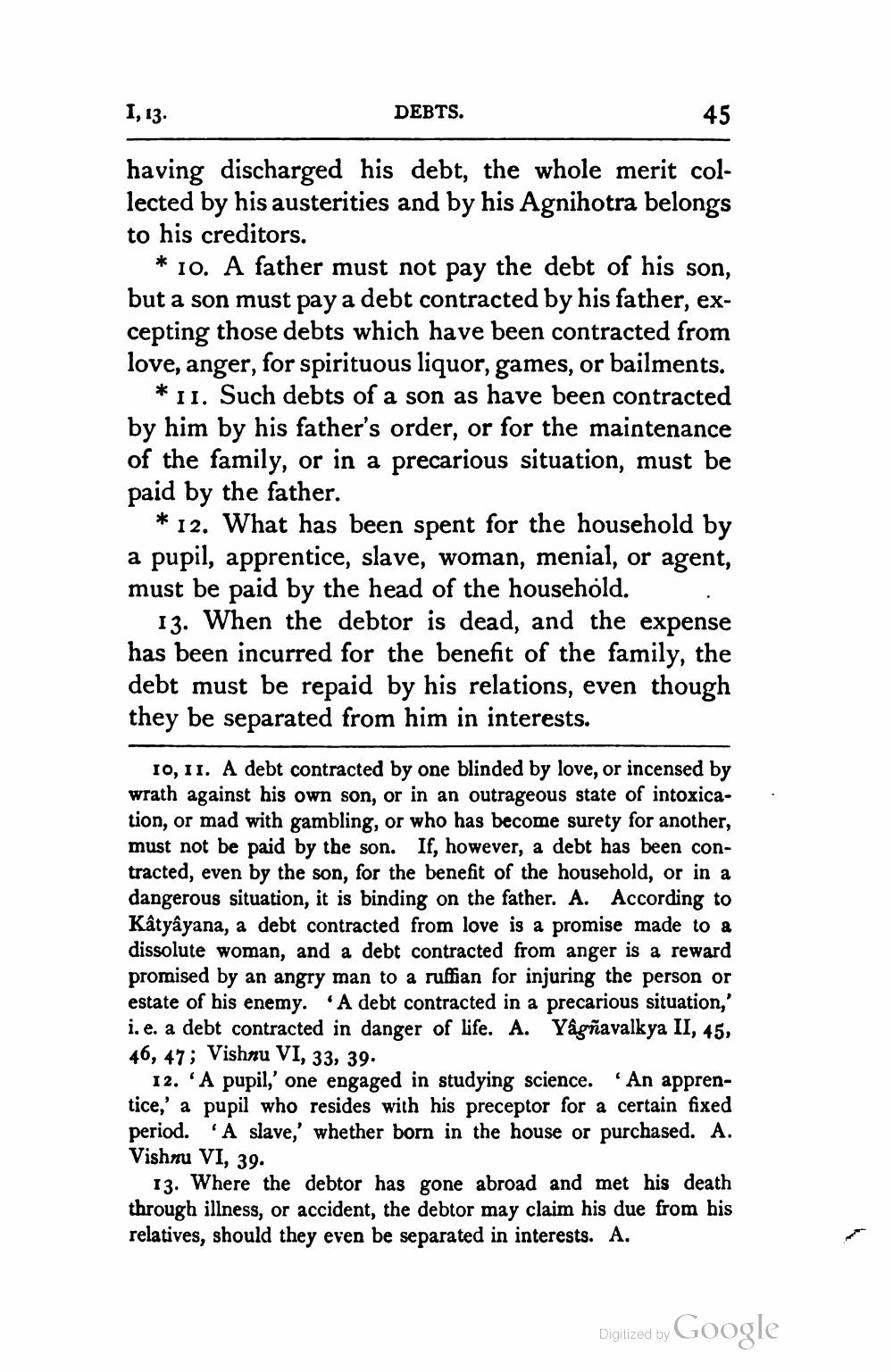________________
1, 13.
DEBTS.
45
having discharged his debt, the whole merit collected by his austerities and by his Agnihotra belongs to his creditors.
* 10. A father must not pay the debt of his son, but a son must pay a debt contracted by his father, excepting those debts which have been contracted from love, anger, for spirituous liquor, games, or bailments.
*11. Such debts of a son as have been contracted by him by his father's order, or for the maintenance of the family, or in a precarious situation, must be paid by the father.
* 12. What has been spent for the household by a pupil, apprentice, slave, woman, menial, or agent, must be paid by the head of the household.
13. When the debtor is dead, and the expense has been incurred for the benefit of the family, the debt must be repaid by his relations, even though they be separated from him in interests.
IO, II. A debt contracted by one blinded by love, or incensed by wrath against his own son, or in an outrageous state of intoxication, or mad with gambling, or who has become surety for another, must not be paid by the son. If, however, a debt has been contracted, even by the son, for the benefit of the household, or in a dangerous situation, it is binding on the father. A. According to Kâtyâyana, a debt contracted from love is a promise made to a dissolute woman, and a debt contracted from anger is a reward promised by an angry man to a ruffian for injuring the person or estate of his enemy. A debt contracted in a precarious situation, i.e. a debt contracted in danger of life. A. Yâgñavalkya II, 45, 46, 47; Vishnu VI, 33, 39. 12. 'A pupil,' one engaged in studying science. 'An appren
esides with his preceptor for a certain fixed period. 'A slave,' whether born in the house or purchased. A. Vishnu VI, 39.
13. Where the debtor has gone abroad and met his death through illness, or accident, the debtor may claim his due from his relatives, should they even be separated in interests. A.
Digitized by Google




